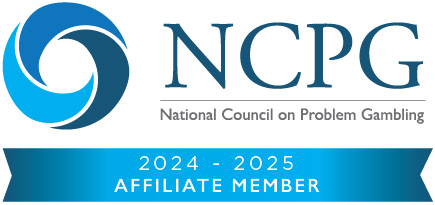By Sasha C. Russell, Communications Specialist, Massachusetts Council on Compulsive Gambling
July 12, 2014 marked the beginning of the 2014 Fédération Internationale de Football Association (FIFA) World Cup. Just like any major sporting event, such as the Super Bowl or March Madness, the World Cup is clouded with gambling.
During the college basketball playoff tournament known as March Madness 2013, it was estimated that about $12 billion was wagered over the 3-week event – “about twice as much that was wagered on the one-day Super Bowl XLVII event, with only $98.8 million being done through legalized gambling in Las Vegas.” Who are you attributing this quote to?These figures are assumed to be relatively small compared to what is wagered during the World Cup. However, the amount of money being wagered across the globe is hard to estimate.
One particular story to hit the news regarding money wagered for the World Cup involves a gambler in Las Vegas. According to the ESPN report, Messi’s Late Goal Saves Bettor $350K, a man wagered approximately $350K on Argentina beating Iran; all for the chance to win $30K. He nearly lost it all until a goal was scored during the last 4 minutes of extra game time. This sparked an interesting conversation between readers of the online article. One reader expressed, “The risk here is much greater than the reward, stupid bet even if he won. It was plain senseless and most likely he will do it again.” In response, another argued, “He won 30k though. How is it a stupid bet if he didn’t lose?” This questioned sparked many more reader comments, many explaining how odds work, or backed up the first commenter. Many shared the sentiment that just because he won doesn’t make the risk worth it, as he could have lost just as easily, and that no bet is a “smart” bet because it’s all based on chance.
People bet on virtually anything. As mentioned in our blog, Super Bowl: Tough for Some, during Super Bowl XLVII, people bet on not just the outcome of the game, but, “how long it will take Alicia Keys to sing the National Anthem, as well as ‘Will Keys get booed? Will she omit/add one word to the anthem? Will Beyoncé be joined on stage by Jay Z during her halftime show? How many times will Jack Harbaugh be shown on TV during the game? Will any Ravens or 49ers be arrested this week? What color Gatorade (or liquid) will be dumped on the winning coach? Who will President Obama pick to win?’” The World Cup is also filled with its fair share of unique wagers, such as whether or not famed soccer player from Uruguay, Luis Suarez, will bite someone – which, he did during a game against Italy, and in turn is barred from the rest of the World Cup and 4 months of the regular FIFA season. This makes it his 3rd bite of his career. Such a small chance of it happening again, yet people found it worth taking the gamble (167 People Cashed in on Bet that Luis Suarez Would Bite Someone at World Cup). One article, Suarez Bites and Gamblers Rejoice, suggests that only people with “serious gambling problems” would actually bet on something as seemingly outrageous as this.
Despite the many ways to legally gamble during the World Cup, there are also many ways illegal gambling has infiltrated the global event. Since the start of the World Cup, around 26 people were arrested involved in Macau as part of two illegal World Cup betting syndicates (Illegal FIFA Online Gambling Busted in Asia). The syndicates have been charged with taking $645 million dollars in illegal wagers on the World Cup from around the world (Macau Busts $645 Million World Cup Betting Ring).
Over the weekend of June 21 and 22, a false news article surfaced on social media with the headline to the effect of, “England Gets Second Chance Due to Match Fixing by Referee.” When you followed the link, it led to a site that stated the article was only a trick. When I read the headline to my husband he simply shrugged his shoulders and said, “Not surprised.” This seemed to be the sentiment of most people who did not follow the link to find out it was a hoax news report. Match fixing has grown to be commonplace in the world of FIFA, and even anticipated in the World Cup (The Fix Is In at the World Cup in Brazil). In fact, FIFA is currently investigating South Africa due to reports of match fixing in 2010 – the same year and location of the last World Cup (Fixed Soccer Matches Cast Shadow Over World Cup; Inside the Fixing: How a Gang Battered Soccer’s Frail Integrity). According to the same investigative report, “The tainted South African matches were not the only suspect ones. Europol, the European Union’s police intelligence agency, said last year that there were 680 suspicious matches played globally from 2008 to 2011, including World Cup qualifying matches and games in some of Europe’s most prestigious leagues and tournaments.”
The BBCreported that Ralf Mutschke, Fifa’s head of security, will not give the 2014 World Cup a “clean bill of health.” Mutschke outlined matches that have the greatest risk of being victims to corruption:
- Certain teams and groups have already been identified as vulnerable to fixers
- The last round of group matches, involving teams with nothing to play for, are most in danger
- Warm-up games are also under threat
- Fixers have already approached players and referees
- The fix of choice will focus on the number of goals in a match.
Ghana is one team that has been under scrutiny involving concern over whether a warm-up match leading up to this year’s World Cup was fixed. On Monday, June 23, the President of the Ghana Football Association (GFA) released a statement denying that he allowed his team to play in matches at risk of being fixed. According to the UK Daily Mail, “Channel 4’s Dispatches and The Telegraph claimed that GFA President, Kwesi Nyantakyi, had agreed for Ghana to play in two proposed matches after the World Cup, but he has denied that. The contract for the partnership between the GFA and Diamond Capital, a bogus investment firm, stated that it would cost £100,000 for each match involving the Ghanaian team, but Diamond would be allowed to appoint the referees and other match officials – a clear violation of FIFA’s rules.”
With match fixing in mind, and the temptation of having a variety of topics to wager on during this year’s World Cup, the Mass. Council encourages people to set limits if they’re going to gamble, and to understand the risks involved.
The Council understands that sports are fun for many people, but there are people who bet on sports, and in some cases, it may take over their lives. With such a wide variety of ways and topics to wager on the world cup, access is not only easily available, but also very appealing. As it stands, soccer is not nearly as popular in the United States as it is for the rest of the world. In his blog on the Gambling Watch UK website Professor Jim Orford’s blog, World Cup Betting: Should We Be Concerned?, notes that many people will ignore opportunities to gamble during the World Cup. Orford explains, “Others will place the occasional small bet and leave it at that. But there will be others who spend more than they or their families would have wished and some who will get into debt or into family arguments as a result. There will be some who will look back in years to come and recognize that ‘the 2014 World Cup was when my gambling problem started’. This is a public health issue and we are all – the betting companies, the Government, the regulator, television companies, the press and media generally, and the general public – responsible for managing it.”
As it stands, soccer is not nearly as popular in the United States as it is for the rest of the world. This does not mean that people in America are exempt from being at risk for experiencing problems with gambling during the World Cup, and for that small population who are at risk, the Mass. Council understands the problem and can help.
Should you or a loved one be experiencing problems with gambling or feel at risk of experiencing problems with gambling, while watching the World Cup or taking part in any other type of activity, the Mass. Council is available 24 hours a day, 7 days a week to chat live online, or talk over the phone (800.426.1234).






